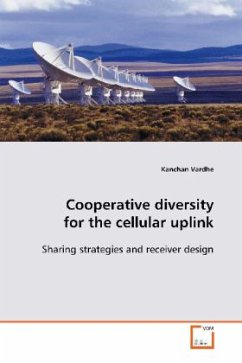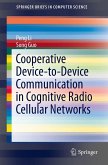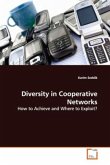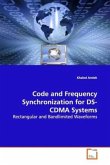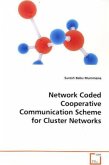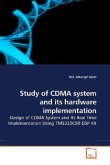In this thesis, we propose data sharing schemes for
the cooperative diversity in a cellular uplink to
exploit spatial diversity and enhance throughput
performance of the system. Particularly, we consider
new two and three-or-more user decode and forward
(DF) protocols using space time block codes and also
amplify and forward (AF) protocols and evaluate the
performance of the above mentioned data sharing
protocols in terms of the bit error rate and the
throughput in an asynchronous code division multiple
access (CDMA) cellular uplink. We develop a linear
receiver for joint space-time decoding and multiuser
detection that provides full diversity and near
maximum-likelihood performance. We also focus on a
practical situation where inter-user channel is noisy
and cooperating users can not successfully estimate
other user''s data. We further design our system model
such that, users decide not to forward anything in
case of symbol errors. Channel estimation plays an
important role here, since cooperating users make
random estimation errors and the base station can not
have the knowledge of the errors or the inter-user
channels. We consider a training-based approach for
channel estimation.
the cooperative diversity in a cellular uplink to
exploit spatial diversity and enhance throughput
performance of the system. Particularly, we consider
new two and three-or-more user decode and forward
(DF) protocols using space time block codes and also
amplify and forward (AF) protocols and evaluate the
performance of the above mentioned data sharing
protocols in terms of the bit error rate and the
throughput in an asynchronous code division multiple
access (CDMA) cellular uplink. We develop a linear
receiver for joint space-time decoding and multiuser
detection that provides full diversity and near
maximum-likelihood performance. We also focus on a
practical situation where inter-user channel is noisy
and cooperating users can not successfully estimate
other user''s data. We further design our system model
such that, users decide not to forward anything in
case of symbol errors. Channel estimation plays an
important role here, since cooperating users make
random estimation errors and the base station can not
have the knowledge of the errors or the inter-user
channels. We consider a training-based approach for
channel estimation.

